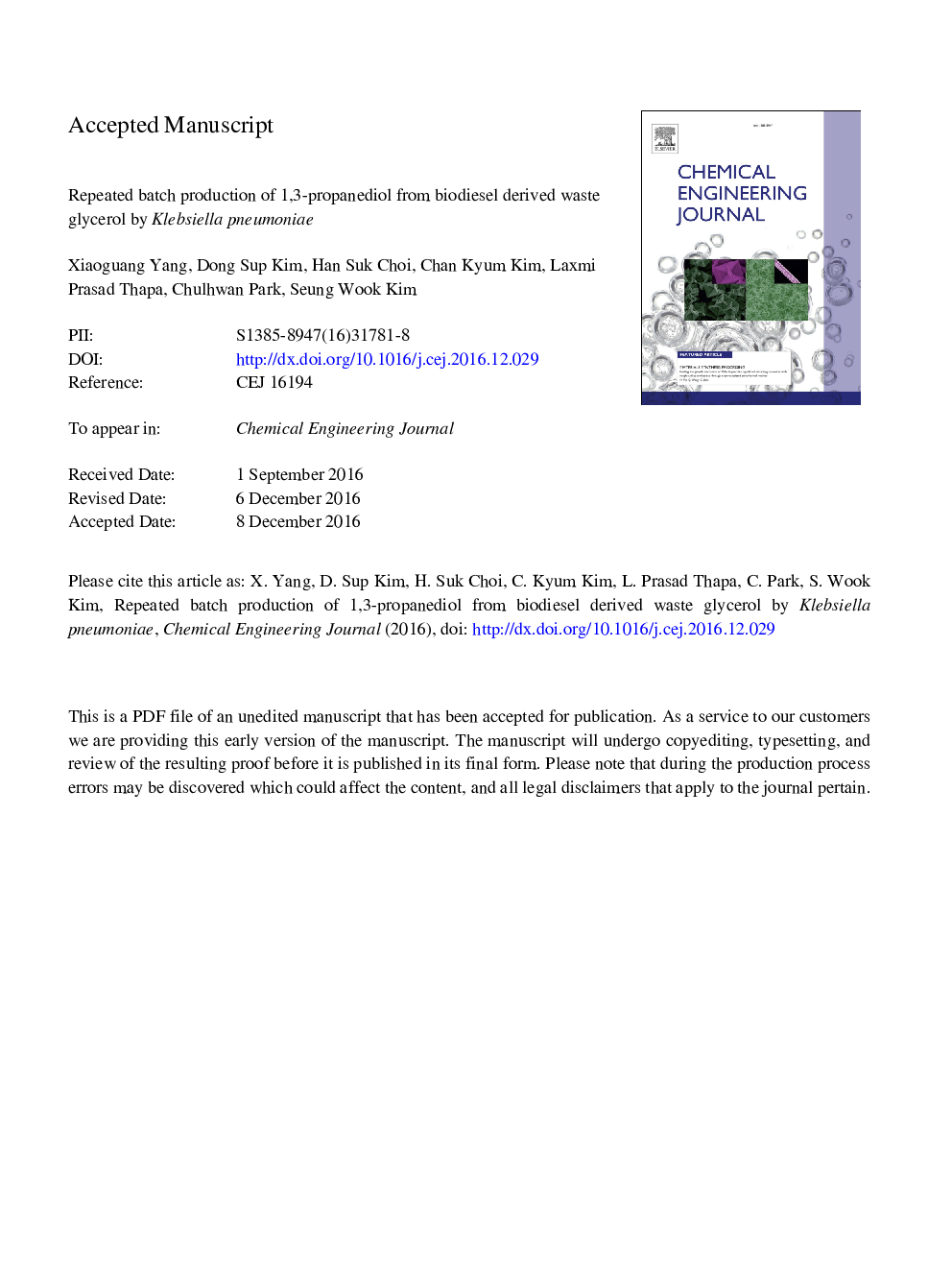| Article ID | Journal | Published Year | Pages | File Type |
|---|---|---|---|---|
| 4763183 | Chemical Engineering Journal | 2017 | 41 Pages |
Abstract
In this study, 1,3-propanediol production was achieved from waste glycerol using Klebsiella pneumoniae ATCC 8724 under both batch and repeated batch fermentation. The inhibitory effects of the culture conditions were investigated considering the waste glycerol components. Anaerobic conditions showed better performance than aerobic conditions. Significant inhibitory effects in batch fermentation were observed in the following conditions: above pH 8, 60Â g/L of initial glycerol concentration or 2% (w/v) of salts contents. However, improvement in 1,3-propanediol production and cell growth was represented below 1% (w/v) content of salts (NaCl and KCl). The highest yield of 1,3-propandiol using batch fermentation was achieved at 0.77 and 0.65 (mol/mol) with pure and waste glycerol, respectively. In addition, repeated batch fermentation was demonstrated with immobilized cells using waste glycerol. Compared to the first cycle of cultivation, 83% of 1,3-propanediol was obtained after five cycles of batch cultivation. The highest concentration and yield of 1,3-propanediol were respectively achieved 0.64 (mol/mol) and 20Â g/L at the second cycle cultivation. The performance of by-products of the repeated batch fermentation with immobilized cells was also investigated for further application.
Related Topics
Physical Sciences and Engineering
Chemical Engineering
Chemical Engineering (General)
Authors
Xiaoguang Yang, Dong Sup Kim, Han Suk Choi, Chan Kyum Kim, Laxmi Prasad Thapa, Chulhwan Park, Seung Wook Kim,
